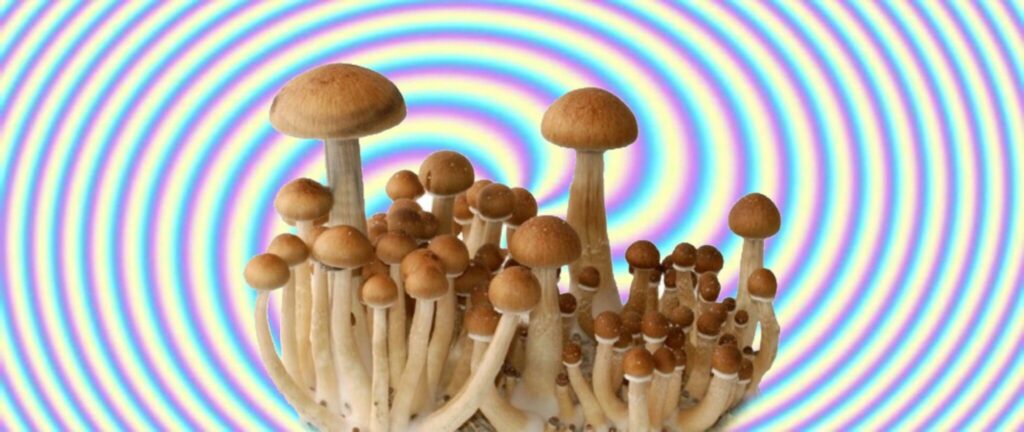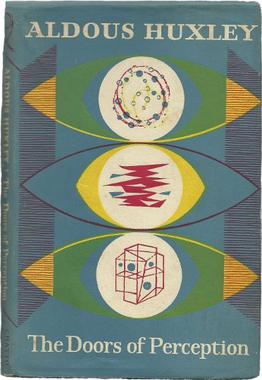That’s what most people think of when it comes to capital-P Philosophy anyway. Extra points if you have a long white beard to stroke!

However, although this is sometimes still the case in the arena of academic philosophy, World Philosophy Day was founded by UNESCO in 2002 to celebrate ”…the enduring value of philosophy for the development of human thought, for each culture and for each individual”
Newsflash! Philosophy is For Everyone
In other words, it’s not an elitist thing. In fact, it exists to highlight that philosophy is for everyone, and that the exploration of philosophical thought, (or open, questioning, innovative, intelligent thought) is key to the continued development of societies, dialogues and understanding across the world. Basically, thinking is good, guys!

Philosophy and Psychedelics
Of course, if you dabble with psychedelics like psilocybin or LSD, you’ve probably already done a fair bit of philosophizing in your time. Psychedelic trips are known for being uniquely life-changing — altering your perspectives, helping you get to know your ‘true’ self, even introducing you to a higher power. In surveys, many people who have had mystical experiences while tripping rate them as one of the most important events of their lives.

Because of this, many philosophers throughout history have been drawn to psychedelics as a means in which to further open their already inquiring minds. Although, of course, Asian and Indigenous American cultures have been using psychoactive substances as philosophizing tools for centuries, in the Western philosophical tradition, which still dominates, usage is relatively new. Unless of course, you count the theory that Plato, one of the founders of Western Philosophy as we know it today, was supping on secret psychedelic beverages…
Was Society Built on a Psychedelic Theory?!
Plato (b.427 d.327), spoke at length about The Mysteries, a series of philosophical and spiritual events held in Ancient Greece. The most prestigious of these being the Eleusinian Mysteries, which Plato himself attended. In the temple of Demeter, the participants would drink a potion called kykeon, made of water, mint, barley, and a psychedelic element. The consensus remains foggy as to what the psychedelic ingredient was, but many historians agree it was there. Chemist Albert Hofmann suggested that the ingredient was most likely ergot — a parasitic fungus that can cause hallucinations — from which he himself synthesized LSD.

Whatever it was, it certainly had an effect, with Plato writing in the Phaedrus;
“[W]ith a blessed company—we following in the train of Zeus, and others in that of some other god—… saw the blessed sight and vision and were initiated into that which is rightly called the most blessed of mysteries, which we celebrated in a state of perfection … being permitted as initiates to the sight of perfect and simple and calm and happy apparitions, which we saw in the pure light, being ourselves pure and not entombed in this which we carry about with us and call the body, in which we are imprisoned like an oyster in its shell.”
The Mind vs. The Body
In this passage Plato states an idea that will become dominant across Western Philosophy, and remains so today — that the body and mind/soul are separate. The body is earthly and heavy — a prison-esque ‘shell’. The mind/soul wants to, and can, fly free. This is dualism, and it went on to inform much of Christianity… as well as basically everything else, for better or worse.
If you follow this story along, it implies that western philosophy could have been inspired, in part, by psychedelics (!) Whatever you think about the probability of this theory, it’s a pretty crazy to ponder upon.
Modern Psychedelic Philosophy
After Plato’s rumored psychedelic-sesh, it was many years until philosophers were discussing getting out of their boxes again. It started with opium and hashish in the 19th century, as thinkers such as Baudelaire and Thomas De Quincey put their scandalous psychedelic adventures to paper. As the 19th century progressed to the 20th, many more now famous philosophers began to experiment with psychedelic substances such as mescaline, nitrous oxide, psilocybin and LSD. Among their number were Nietsche, Sartre, Benjamin and Foucault.
Nietzsche wrote; “There are two states in which man arrives at the rapturous feeling of existence, namely in dreaming and in intoxication.”
The Doors of Perception
Perhaps the most enduring contribution to psychedelic philosophy we have today comes, of course, from Aldous Huxley, author of The Doors of Perception (1954). Huxley’s theory, arrived at via studying other philosophers, and taking psychedelics, was that our brains are in fact a filter, which streams reality for us, rather than constructing it. Our brain, in normal waking life, is ‘protecting’ us from the dizzying magic of cosmic truth. Our brains create the doors of perception, which psychedelics can then blast open. Huxley called the unfiltered brain the ‘Mind at Large.’

In the 60s & 70s came the philosophizing of psychedelic pioneers such as Timothy Leary, Ram Dass, Stanislav Grof, Terence McKenna and the Shulgins. However, after psychedelics became illegal much less experimentation, or at least public experimentation, of psychedelic philosophy was possible.
Today psychedelic philosophy has been revitalized by the ever growing wave of psychedelic research. Now often combined with the field of neuropsychology, we are able to physically see the effects of psychedelics on the brain, which opposes the mind/body dualism of Plato et al. We can see the physical changes that cause the psychological ones. Are we literally witnessing The Doors of Perception open?!?! You never know…
Would Today’s Philosophers Benefit from Psychedelics?
Professor Dr. Thomas Metzinger, a German theoretical philosopher, states that consciousness researchers today would highly benefit if they were “well traveled in phenomenal state space, if they were cultivated in terms of the richness of their own inner experience.”
Similarly Peter Sjöstedt-H, an Anglo-Scandinavian philosopher, who teaches the UK’s first ever Philosophy and Psychedelics course at Exeter University states;
“The sublime, mind-blasting phenomenology of such events (and one should at least refer to them as events) cannot fail to alter the course of a mind researcher.”
Here, the ‘events’ of course, refer to psychedelic trips. With such vocal advocates, it is easy to imagine a future where psychedelics become a key part of academic philosophy.
How Can You Celebrate World Philosophy Day?
But how can you celebrate World Philosophy Day today? Here’s a few easy ideas to get ya philosophizing, whether you add some psychedelics into the mix or not!
Read some classic philosophy!
It’s a big selection out there but you could start with some foundational thinkers, such as Socrates, Plato, Lao Tzu, Decartes, Spinoza, Kant, Nietsche, de Beauvoir… the list is endless. And remember, these books can be very wordy and dense. There’s no shame in looking up summaries and explanations online. As long as you understand the theory, you can think about it.

Read some psychedelic philosophy!
Why not tie it together in a neat bow? Here is some key psychedelic philosophy reading material:
The Doors of Perception by Aldous Huxley
Be Here Now by Ram Dass
The Joyous Cosmology: Adventures in the Chemistry of Consciousness by Alan Watts
Noumenautics: Metaphysics – Meta-Ethics – Psychedelics by Peter Sjöstedt-H
Think!
Once you’ve filled your head will philosophical inspiration, why not have a ponder and come to your own conclusions? Give yourself time to think. Sit in a comfy chair, and just let yourself question — everything.
What does the writer mean? Why do they think this? What do I think about it? And what can I do with it?
Even if you didn’t like the text you read, that is valid too.

Take magic mushrooms and think!
Wondering how to make your psychedelic trips more philosophical? By stocking your brain with knowledge, theories, and ideas before you trip you are sure to be stimulated during your psilocybin journey with new insights and ideas. Philosopher Willam James said he himself only understood the work of Hegel (another philosopher dude) when high. Why not try it out? You may also come up with some radical theories of your own…

Happy World Philosophy Day!
So, Happy World Philosophy Day everyone!
And remember, you can keep incessantly asking ‘why?’ all year round — not just today! Never stop questioning 😉





